Bishop Finn’s Story in Broader Context: John Paul II and the Demise of Pastoral Bishops
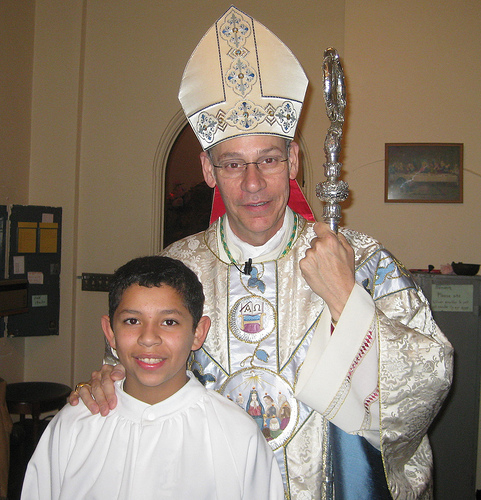

The Gay Catholic Priests' Blog
Bishop Finn’s Story in Broader Context: John Paul II and the Demise of Pastoral Bishops

On Sunday, priests in a number of Twin Cities Roman Catholic parishes read a letter from Archbishop John Nienstedt re-stating the church’s support for the proposed constitutional amendment to ban same-sex marriage.
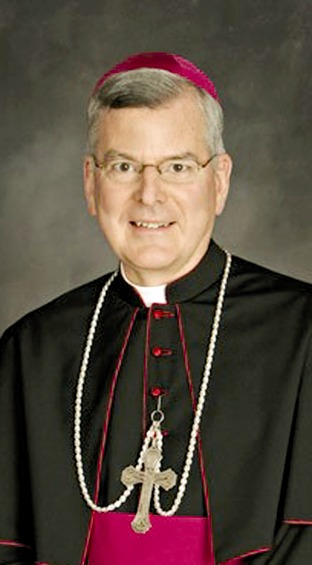 On Monday, Michael Bayly, the director of Catholics for Marriage Equality, noticed a spike in requests for the group’s lawn signs, which read, “Another Catholic Voting No.”
On Monday, Michael Bayly, the director of Catholics for Marriage Equality, noticed a spike in requests for the group’s lawn signs, which read, “Another Catholic Voting No.”
Some of the people who stopped by his south Minneapolis office to pick them up told him people had walked out of their churches during the reading. A parishioner at the nearby Church of the Annunciation said half a dozen left her service.
On Thursday, the Archdiocese of St. Paul and Minneapolis’s official publication, the Catholic Spirit, carried the text of the letter.
Meanwhile, the Facebook site “I am Catholic. I am Voting NO!” acquired a list of parishes where the letter was not read. The most prominent of the 17 churches listed: Minneapolis’ Basilica of St. Mary.
In the letter, Nienstedt asserts that the purpose of the ballot initiative has been misconstrued. “Our effort to support God’s unchanging plan for marriage is not a campaign against anyone, but rather a positive effort to promote the truth about marriage as a union between one man and one woman,” he writes.
“But the reality is that marriage is not ours to redefine, just as another human life is not ours to take,” the archbishop continues. “God is both the author of life and the author of marriage. It is this most fundamental understanding of the natural order that animates who we are as Catholics. … It is also why we fight to defend God’s plan for marriage, because his providence is as clear for what marriage is as it is for the dignity of each human life. …
“Now, Minnesota for Marriage needs your help to get the message out. We must ensure that Minnesotans know what is at stake and have the correct information about why they should vote ‘Yes’ for the marriage amendment. (Remember that if you leave the ballot box blank, the government votes ‘No’ for you!).”
The Archdiocese did not return calls seeking comment Thursday.
Bayly hears something different. “He seems to have softened his language about gay people,” he said, referring to Nienstedt. “They must have realized they’ve alienated people.”
“We know that some who are seeking to redefine marriage experience same-sex attractions,” the letter reads. “Our brothers and sisters living with same-sex attraction are beloved children of God who must be accepted with respect, compassion and sensitivity.
“Every sign of unjust discrimination in this regard must be avoided. People with same-sex attractions, like others in society, are productive citizens, community servants, good friends and our beloved family members.
“At the same time, however, it is important to know that the effort to ensure that the definition of marriage remains as between one man and one woman does not take away anyone’s existing rights or legal protections. As Catholics, we believe that all people should be able to visit loved ones in the hospital, pass on their property to whomever they choose and have access to employment, housing and the basic necessities of life. Saying ‘yes’ to God’s plan for marriage will not change any of this.”
In recent months, Catholics who either plainly disagree with the church’s stance on marriage rights for gays and lesbians or who are wrestling with their consciences have been increasingly visible. The conflicted parishioners have organized everything from informational meetings in borrowed, non-Catholic churches to vigils outside the Chancery.
Many were offended by Nienstedt’s decision to take a very active role in the campaign for the amendment. To date, Minnesota Catholic churches and groups have given $1 million to the vote-yes effort.
Others have been unhappy with statements that put their love for their church in opposition to their love for LGBT relatives and friends. One example: A letter Nienstedt penned for the Catholic Spirit soon after his 2007 ascension in which he warned that those “who actively encourage or promote homosexual acts … formally cooperate in a grave evil, and … are guilty of mortal sin.”
Still others were upset that in the run-up to the 2010 gubernatorial contest, Nienstedt distributed 400,000 DVDs, paid for by an anonymous donor and by the Knights of Columbus, urging Catholics to vote for the only candidate in the race opposed to same-sex marriage, Tom Emmer.
“That language and that approach has clearly been ditched,” said Bayly. Still, he added, “The fact that they can’t bring themselves to talk about gay people or lesbian people is offensive.”
The divide has put the church in the headlines numerous times in recent months. In late July, newspapers reported that Minnesota Secretary of State Mark Ritchie, himself the topic of amendment-related news stories, had been invited to speak at St. Joan of Arc Church in Minneapolis. Later stories reported that he was subsequently uninvited and then that his appearance had been postponed.
At the same time, some members of a group of 102 former priests that signed on to a statement opposing the amendment have disagreed publicly with the church’s depiction of its teachings.
“That conscience must rule is consistent with what all of us former priests learned in seminary,” Ed Kohler wrote in a letter published earlier this month in the Pioneer Press. “That conscience must rule is also consistent with the current Pope Benedict XVI — who taught, while still Father Joseph Ratzinger, that ‘Over the pope as the expression of the binding claim of ecclesiastical authority, there still stands one’s own conscience, which must be obeyed before all else, even if necessary against the requirements of ecclesiastical authority.’”
One active priest, Bob Pierson, told some 200 Catholics at an event in Edina that they can vote against a proposal to amend the Minnesota Constitution to ban gay marriage. Bayly and several other members of Catholics for Marriage Equality say they have been told the Archdiocese has ordered Pierson to stay silent on the issue from now on.
“There are groups of Catholics who are hungry for alternative perspectives on this,” Bayly said. “I’ve got a pretty well-full September of speaking engagements around the state.”
Complete Article HERE!
People don’t expect their priests and bishops to lie, but as Michelangelo Signorile’s recent post illustrated, clerics do lie. Some even make a virtue of it. I know this from experience, for I was ordained a Catholic priest on a lie.
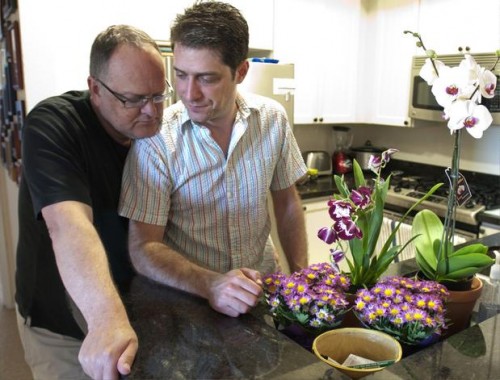 In spring 2002 I walked with my spiritual director along the blacktop road encircling the seminary. He’d been my confessor and guide for two years, helping me discern God’s presence in all aspects of my life, intimate and mundane. Over our heads, a canopy of newborn leaves rustled in a sunny breeze, a welcome relief from the bitter fog that had engulfed the church and my vocational surety.
In spring 2002 I walked with my spiritual director along the blacktop road encircling the seminary. He’d been my confessor and guide for two years, helping me discern God’s presence in all aspects of my life, intimate and mundane. Over our heads, a canopy of newborn leaves rustled in a sunny breeze, a welcome relief from the bitter fog that had engulfed the church and my vocational surety.
For the previous two months an unprecedented number of bishops and priests, starting with Cardinal Law of Boston, had fallen from grace for participation in the sexual abuse of children and the ensuing cover-up. Their duplicity was palpable in my knotted back and abdomen. In a few months I’d be ordained a priest. I didn’t want to do so on a lie.
“I’m coming out of the closet,” I said.
My spiritual director loosened his clerical collar and lit a cigarette. “Where’s this coming from?” he asked. A couple of chattering wrens whooshed past.
I backtracked through six years of seminary formation. At events I had hobnobbed with supposedly holy men, some of whom had been harboring pedophiles. A few had done the deed themselves. By shaking their hands, mine were dirty. I knew the ecclesiology, how the bishops’ authority stemmed from a direct line to Jesus, but they were still criminals. Who were they to declare homosexuals “intrinsically depraved”?
When I’d applied for seminary, the director of seminarians — the priest who’d recruited me — explained that orientation didn’t matter, only celibacy. But on my intake interviews he’d told me to answer “yes” when the archdiocesan psychologist asked if I was attracted to women, and “no” when he asked if I was attracted to men. It was for the greater good, he said. Frightened of being cast out and ashamed of my true nature, I had lied as instructed.
In light of the sexual abuse scandal, lying about my orientation was no longer acceptable. I thought of what a gay friend who’d left seminary had said. His words became my own: “I don’t know if I can separate my private and public selves. Isn’t integration the goal of spiritual direction?”
“Of course it is,” my spiritual director said, more gravelly than usual. He stopped and turned to me. A tree cast a web of shadows over his face. His strawberry nose grew flushed, as he gestured with his hands. “Here’s the thing, Rastrelli. You have to ask yourself: Am I going to be a gay priest, or a priest” — he rolled his fingers and cigarette through the air like a barrel — “who happens to be gay?”
“What’s the difference?” I turned my head to inhale, trying to avoid his secondhand smoke. “Either way I’m gay. It’s a part of me.”
“But are you gay first, and then a priest? Or a priest first, and then gay?” He smiled, satisfied with the distinction.
“Both/and.” I’d hit him with what he’d taught me in class. “Both/and” was the paradoxical answer for every ultimate question in Catholic theology: Scripture or tradition? Faith or works? Is Jesus divine or human? Are we sinful or good? is faith a solo or communal experience?
“Touché,” he said. We walked. He sucked his cigarette. “You’re a smart guy, Rastrelli. Give it some thought.”
I kicked a pebble onto the grass. “I have. I don’t want to lie about my sexuality.”
“It’s not lying if those asking don’t have a right to the information.”
He hadn’t even flinched. I wanted to shake the nicotine from his bones, to scream, “It was that kind of thinking that landed the bishops in the papers!” Still, part of me wanted him to be right. Silence was simpler, easier, and maybe my need to come out was just pride at work. My promise of obedience demanded that I surrender my ego. My vocation was about God, not my orientation. But couldn’t we priests be honest with one another? I had to try.
“Gay Catholics don’t have positive role models,” I said. “I don’t know of a single gay priest that’s healthy. Do you?” I stopped. He kept walking. This was as close as I’d ever come to asking him if he was gay. I suspected he was. He’d lived with another priest for decades. They vacationed and picked out carpeting together. They spoke about their cat as if she were their child. Even if he and his housemate weren’t having sex, they were a couple. I stepped in stride with him. “How am I supposed to be an integrated gay priest when I have no one to look up to? How does celibacy actually work?” I stopped again. “I’m asking you.”
He turned to me. His face became whiter than a funeral pall. “I’m sorry, Rastrelli, but that’s not a conversation I’m comfortable having with a student.”
He resumed his pace. I followed silently.
The breeze picked up. The undulating trees sounded like the ocean breaking on the shore. I choked back the urge to ask, “Are you gay?” I felt like a sinking ship in a fleet that had wandered into a minefield. After laying the mines himself, the fleet commander had ordered radio silence.
I didn’t want to drown alone. I didn’t want to hear him lie. I wanted the truth, but the truth was dangerous. Were I to come out amid sexual-abuse headlines, homophobic Catholics wrongly blaming gay priests for the scandal would demand my dismissal.
My spiritual director was right. Who were they to judge, to put my orientation before my vocation? They had no right to that knowledge. It was safer to be a priest who happened to be gay. Perhaps it was God’s will. The fear accompanying us back to the seminary told me so.
That day, I learned the unspoken rule passed down through generations of priests: the doctrine of justification for lying by clergy. I went on to be ordained a priest. I preached that “the truth will set you free” while living in silence and shame. After a long journey and much pain, I came out. I left the priesthood, finally refusing to live the lies that I’d been taught to venerate.
Complete Article HERE!
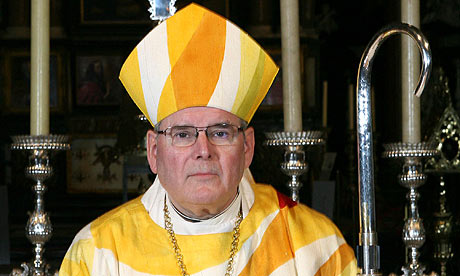 A Belgian lawyer said on Monday he had launched an inquiry into a new case of alleged sexual abuse by the former bishop of Bruges, Roger Vangheluwe, who has already admitted to having abused his under-age nephews.
A Belgian lawyer said on Monday he had launched an inquiry into a new case of alleged sexual abuse by the former bishop of Bruges, Roger Vangheluwe, who has already admitted to having abused his under-age nephews.
“The present case concerns sexual abuse in the 1990s,” at a care home in Loker, in western Belgium near the French border, the lawyer, Walter Van Steenbrugge, said.
He said he had handed the allegations to a court in Brussels and lodged an inquiry with it. It was up to the court to decide whether the statute of limitations ruled out a prosecution, and if not, whether or not to prosecute the bishop, he added.
Vangheluwe, who was bishop of Bruges from 1984 to 2010, is the highest-ranking member of the Belgian Catholic Church to be involved in a child abuse scandal which resulted in 475 complaints of molestation by priests.
Vangheluwe admitted in 2010 that he had abused one of his nephews during the 1980s, when the nephew was a child.
That case was beyond the statute of limitations, but he was forced to resign as bishop and left Belgium under Vatican orders.
He caused outrage in 2011 when he told a Belgian TV station that he had also abused a second nephew but that he did not consider himself a paedophile.
Complete Article HERE!
I wrote about this very thing in Part 4 of my five-part series on Catholic Moral Theology. Look for it —> Seismic Shift.
The Pope has signalled a historic shift in the position of the Roman Catholic Church by saying condoms can be morally justified.
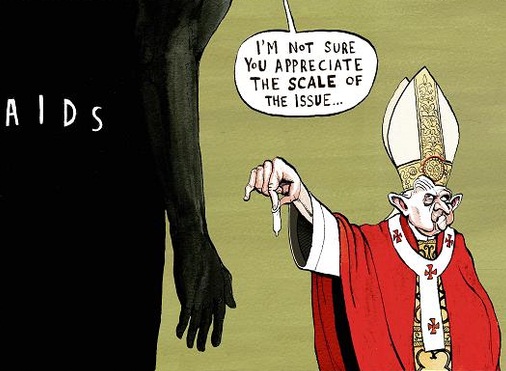 After decades of fierce opposition to the use of all contraception, the Pontiff has ended the Church’s absolute ban on the use of condoms.
After decades of fierce opposition to the use of all contraception, the Pontiff has ended the Church’s absolute ban on the use of condoms.
He said it was acceptable to use a prophylactic when the sole intention was to “reduce the risk of infection” from Aids.
While he restated the Catholic Church’s staunch objections to contraception because it believes that it interferes with the creation of life, he argued that using a condom to preserve life and avoid death could be a responsible act – even outside marriage.
Asked whether “the Catholic Church is not fundamentally against the use of condoms,” he replied: “It of course does not see it as a real and moral solution. In certain cases, where the intention is to reduce the risk of infection, it can nevertheless be a first step on the way to another, more humane sexuality.”
He stressed that abstinence was the best policy in fighting the disease but in some circumstances it was better for a condom to be used if it protected human life.
“There may be justified individual cases, for example when a male prostitute uses a condom, where this can be … a first bit of responsibility, to redevelop the understanding that not everything is permitted and that one may not do everything one wishes.
“But it is not the proper way to deal with the horror of HIV infection.”
The announcement is in a book to be published by the Vatican this week based on the first face-to-face interview given by a pope.
In the interview, he admits he was stunned by the sex abuse scandal that has engulfed the Catholic Church and raises the possibility of the circumstances under which he would consider resigning. The 83-year-old Pontiff says in passages published exclusively in The Sunday Telegraph today that he is aware his “forces are diminishing”.
However, he appears determined to fight for the place of faith in the public domain.
His language in attacking the use of recreational drugs in the West and its impact on the rest of the world is particularly striking.
He describes drug trafficking as an “evil monster” that stems from the “boredom and the false freedom of the Western world”. Most significant, however, are his comments on condoms, which represent the first official relaxation in the Church’s attitude on the issue after rising calls for the Vatican to adopt a more practical approach to stopping the spread of HIV.
The Pope’s ruling is aimed specifically at stopping people infecting their partners, particularly in Africa where the disease is most prevalent.
However, it will inevitably be seized upon by liberal Catholics in Britain who oppose the Church’s stance against contraception.
High profile Catholics such as Cherie Blair have stated publicly that they use birth control.
The Pope’s comments are surprising because he caused controversy last year by suggesting that condom use could actually worsen the problem of Aids in Africa.
He described the epidemic in the continent as “a tragedy that cannot be overcome by money alone, that cannot be overcome through the distribution of condoms, which even aggravates the problems”.
The Vatican amended an official version of the remarks to indicate that he said merely that condoms “risk” aggravating the problem.
However, there have been growing calls for the Church to clarify its position.
Theologians suggest that condoms are not a contraceptive if they are intended to prevent death rather than avoid life.
The Pope’s comments in the book, Light of the World, are likely to be welcomed by Catholic leaders in the West who have struggled to explain its current teaching.
Asked last year whether a married Catholic couple should use condoms where one of them had Aids, Archbishop Vincent Nichols, head of the Church in England and Wales, disclosed the confusion over the issue. “Obviously that’s a sensitive point and obviously there are different views on that,” he said.
Hardline Catholics are likely to be surprised and dismayed by the Pope’s comments as they argue that condoms can be used only as contraceptives.
There has been great anticipation before the book’s release, heightened by its author, Peter Seewald, who said in a teasing comment that it could be “a big sensation”.
“It is the first time that a Pope gives an account of himself in this form,” he said.
“It is the first personal interview with a pope in the Church’s history.”
The Pope gives his most personal account of the distress caused to him by the clerical sex abuse scandal, with particular reference to Germany and Ireland.
He says: “It was really almost like the crater of a volcano, out of which suddenly a tremendous cloud of filth came, darkening and soiling everything, so that above all the priesthood suddenly seemed to be a place of shame and every priest was under the suspicion of being one like that too.” He did not consider resigning over the crisis but does raise the possibility of a pope resigning if he were to lose his mental capacities.
“If a Pope clearly realises that he is no longer phys-ically, psychologically, and spiritually capable of handling the duties of his office, then he has a right and, under some circumstances, also an obligation to resign.” He tells of the last time he saw Pope John Paul II, his predecessor; talks of his reluctance to be Pontiff; and speaks of his increasing frailty.
“I had been so sure that this office was not my calling, but that God would now grant me some peace and quiet after strenuous years,” he says. While the Pope stresses the importance of dialogue with Islam, he nevertheless says the religion needs to “clarify … its relation to violence” and suggests it can be intolerant.
The Pontiff is highly critical of the “craving for happiness” in the West.
“I believe we do not always have an adequate idea of the power of this serpent of drug trafficking and consumption that spans the globe,” he says.
“It destroys youth, it destroys families, it leads to violence and endangers the future of entire nations.
“This, too, is one of the terrible responsibilities of the West: that it uses drugs and that it thereby creates countries that have to supply it, which in the end exhausts and destroys them.”
He continues: “A craving for happiness has developed that cannot content itself with things as they are.”
Talking about sex tourism, he says: “The destructive processes at work in that are extraordinary and are born from the arrogance and the boredom and the false freedom of the Western world.”
Complete Article HERE!